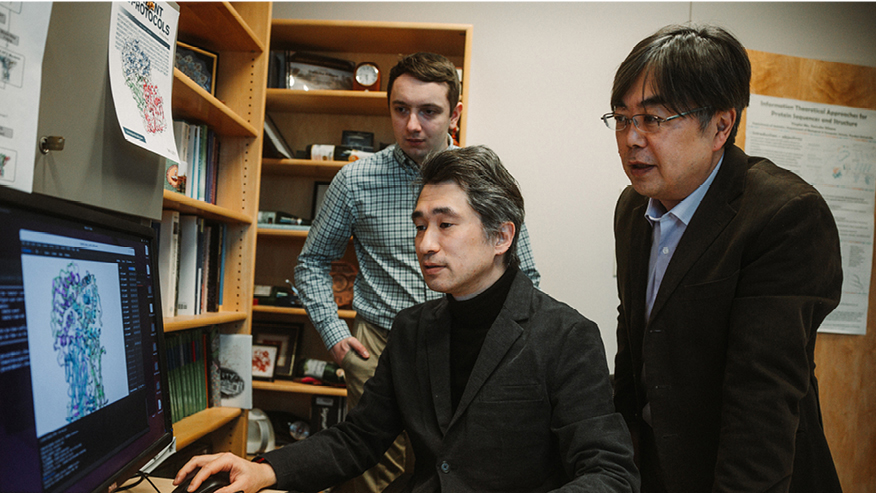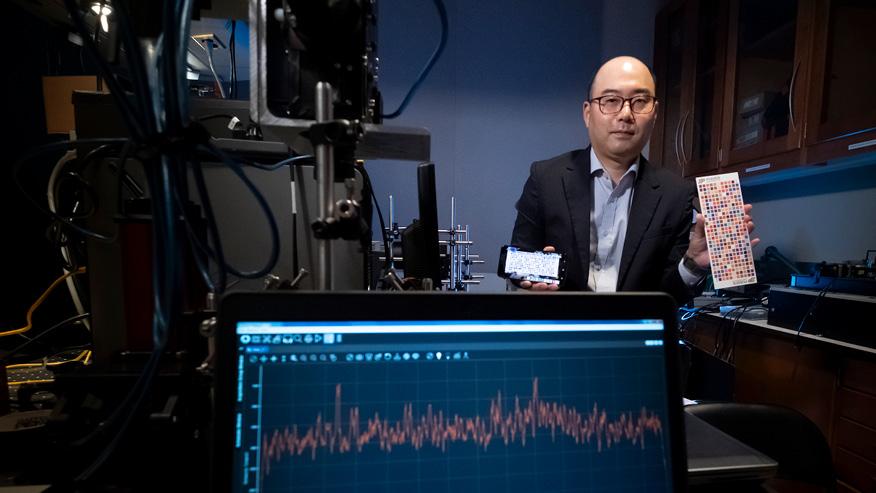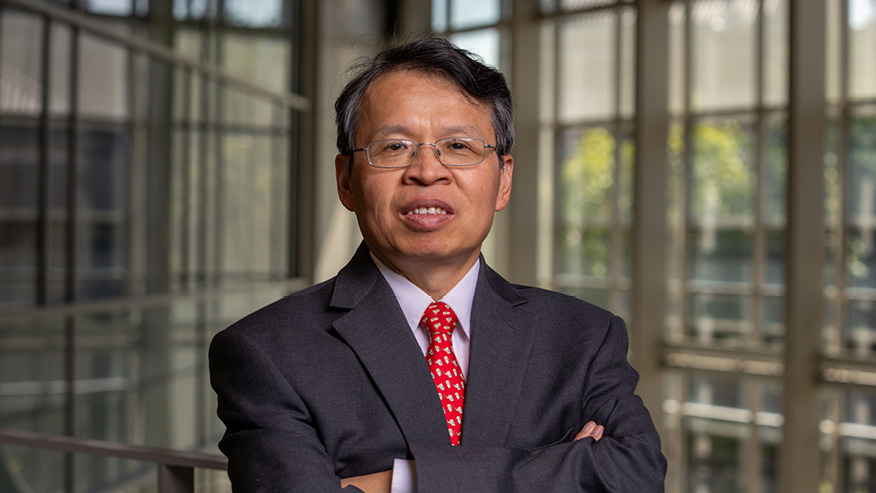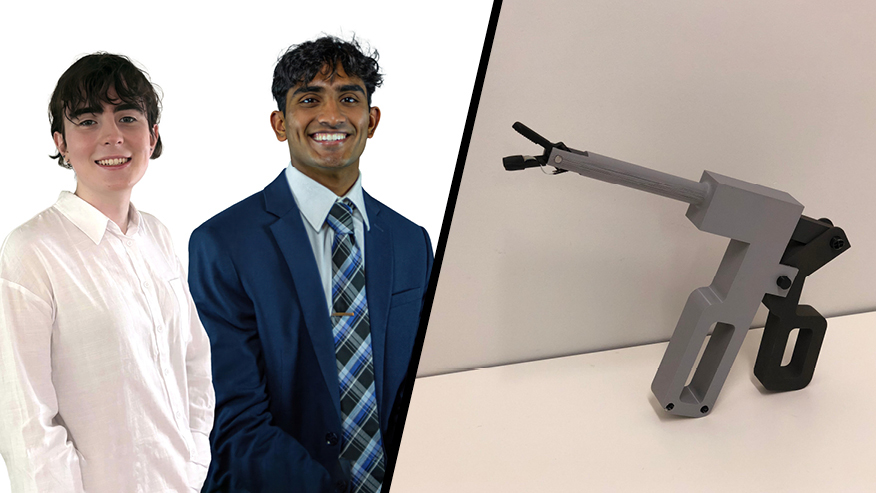New Purdue compounds could make conventional personal care products sustainable
Soy-based compounds show similar or superior surface activity compared to commercial petroleum-based ones
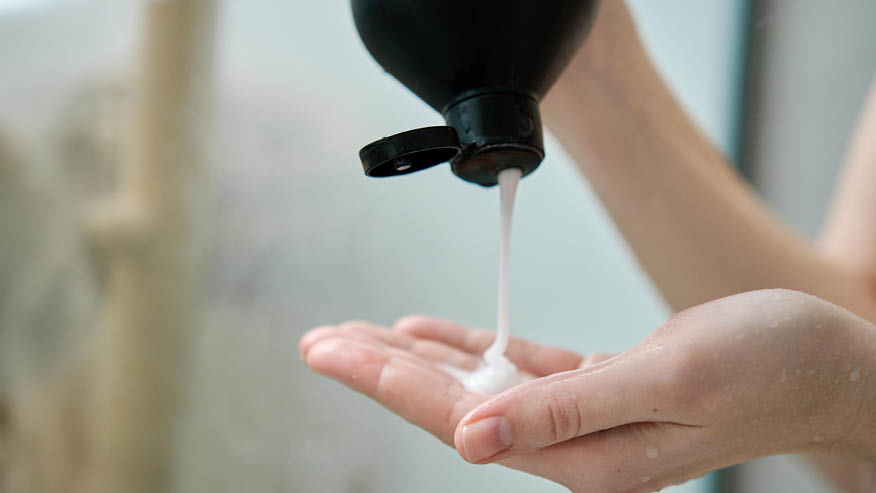
Purdue University engineers Jeffrey Youngblood and Carlos Martinez have developed soy-based compounds that could make shampoos, conditioners and antimicrobial washes sustainable. (Photo/iStock)
WEST LAFAYETTE, Ind. — Soy-based materials developed at Purdue University have been proven to reduce surface tension in a liquid as well as or better than commercial petroleum-based materials. The new materials could make personal care products more sustainable while maintaining product quality.
Petroleum-based surfactants are used in most conventional shampoos, conditioners and antimicrobial washes.
Jeffrey Youngblood and Carlos Martinez, researchers in the College of Engineering, have developed patent-pending soybean oil- and hydrogenated soybean oil-based cationic surfactants. Youngblood is a professor and Martinez is an associate professor in the School of Materials Engineering. Youngblood also is an affiliate of Environmental and Ecological Engineering.
“A surfactant is a chemical compound that reduces a liquid’s surface tension and lets it spread out to wet a surface,” Youngblood said. “There is a lack of bio-based surfactants on the market, which is a sustainability issue.”
Youngblood and Martinez disclosed the soy-based surfactants to the Purdue Innovates Office of Technology Commercialization, which has applied for a patent to protect the intellectual property. Industry partners interested in developing or commercializing them should contact Dipak Narula, lead technology development liaison and assistant director of business development and licensing — physical sciences, at dnarula@prf.org about track code 70130.
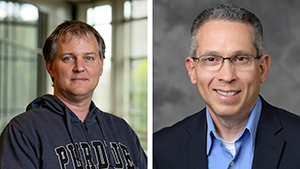
Validation and next steps
During tests, the soy-based surfactants exhibited comparable or better surface activity than commercial QA (quaternary ammonium) compounds, CTAB (cetyltrimethylammonium bromide) compounds and DTAB (dodecyltrimethylammonium bromide) compounds.
“Our soy-based surfactants may not impact the performance of personal care products,” Youngblood said. “They can be a drop-in replacement for petroleum-based surfactants; manufacturers will not need a new product or platform to implement them into their processes.”
Youngblood said further research will be conducted on the soy-based surfactants.
“We are currently finishing the cationic portion and writing a paper and will continue to anionic and neutral surfactants,” he said.
The Indiana Soybean Alliance provided funding to support Youngblood and Martinez’s research.
About Purdue Innovates Office of Technology Commercialization
The Purdue Innovates Office of Technology Commercialization operates one of the most comprehensive technology transfer programs among leading research universities in the U.S. Services provided by this office support the economic development initiatives of Purdue University and benefit the university’s academic activities through commercializing, licensing and protecting Purdue intellectual property. In fiscal year 2024, the office reported 145 deals finalized with 224 technologies signed, 466 invention disclosures received, and 290 U.S. and international patents received. The office is managed by the Purdue Research Foundation, a private, nonprofit foundation created to advance the mission of Purdue University. Contact otcip@prf.org for more information.
About Purdue University
Purdue University is a public research university leading with excellence at scale. Ranked among top 10 public universities in the United States, Purdue discovers, disseminates and deploys knowledge with a quality and at a scale second to none. More than 107,000 students study at Purdue across multiple campuses, locations and modalities, including more than 58,000 at our main campus in West Lafayette and Indianapolis. Committed to affordability and accessibility, Purdue’s main campus has frozen tuition 13 years in a row. See how Purdue never stops in the persistent pursuit of the next giant leap — including its comprehensive urban expansion, the Mitch Daniels School of Business, Purdue Computes and the One Health initiative — at https://www.purdue.edu/president/strategic-initiatives.
Media contact: Steve Martin, sgmartin@prf.org
